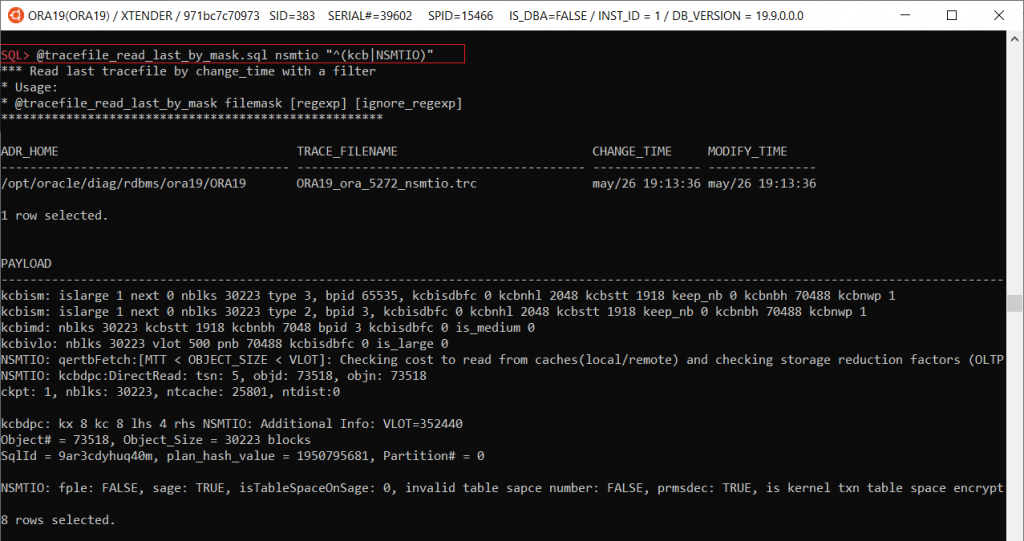@tracefile_read_last_by_mask filemask [regexp] [ignore_regexp]
– finds last trace by filemask and filters rows by regexp and filters out rows by ignore_regexp:

@ tracefile_by_mask.sql [mask] – finds and shows last 10 trace files by mask
Continue reading